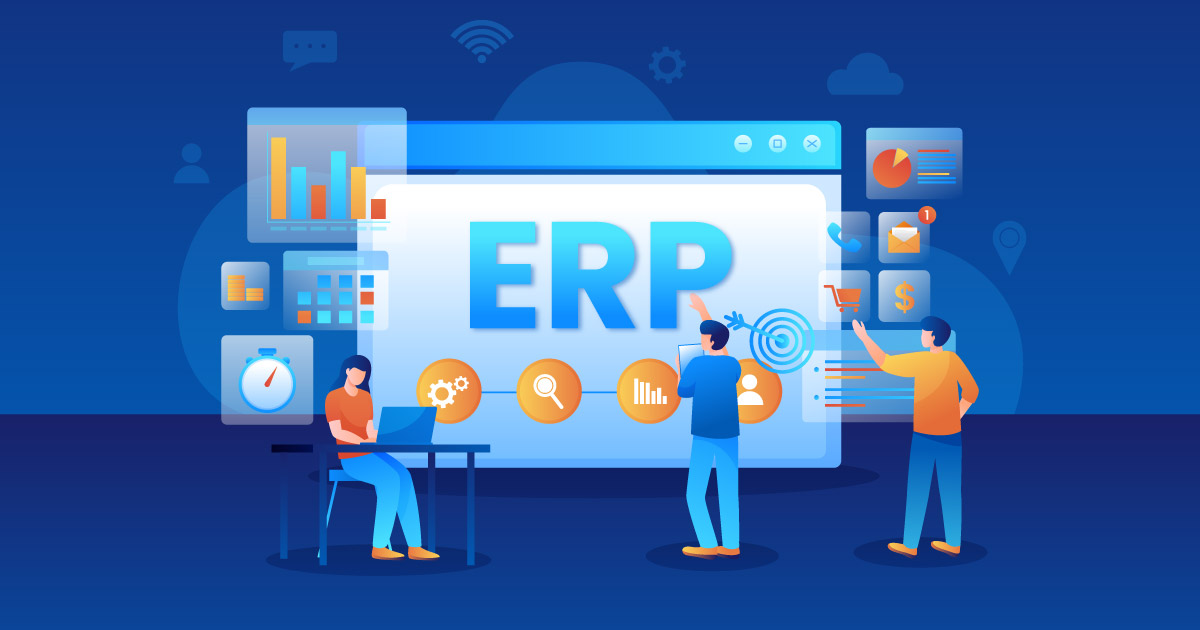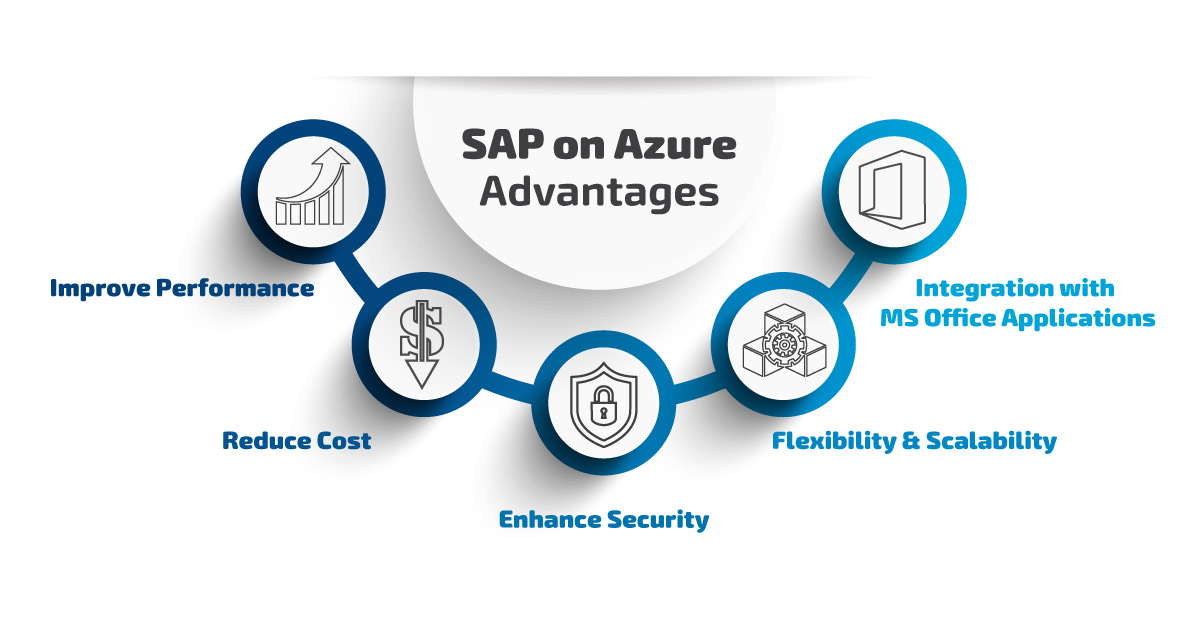Most enterprises on a growth path require targeted data available to them in a secure manner without the burden of escalating IT costs. SAP, one of the most widely used ERP applications in the business community can help provide secure data in an actionable format. However, the on-premise deployment of the SAP system takes away the entire purpose of robust digital automation efforts.
With the SAP business software in the cloud, businesses can ensure shorter release cycles and scalability that can cater to growing performance requirements. Adapting to new software versions can be expedited and it is possible to gain access to the targeted networking of the enterprise applications deployed. Cloud platforms offer benefits such as cost-effectiveness and flexibility, thereby, helping businesses to migrate their on-premise SAP environment to the cloud.
Cloud service providers such as Amazon Web Services (AWS), Google Cloud Platform, and Microsoft Azure deliver certified security features with defined performance for SAP enterprise applications. Now the question remains as to which platform will be most suitable.

Microsoft Azure & SAP
Microsoft Azure is a leading enterprise-oriented public cloud platform with a long-term strategic partnership with SAP. Microsoft solutions are particularly attractive because it is suitable for special requirements of individual departments of enterprises. It can be implemented at lower service costs and it also offers pay per use model.
For instance, say a business wants to process sensor data in SAP but SAP Leonardo does not seem to work out, the business can reach out to Microsoft’s “Intelligent Edge” using Azure Internet of Things (IoT) for this purpose. Azure helps companies create cloud models and collect more data for their business operations. With Azure Artificial Intelligence (AI) and Analytics, enterprises can make better business decisions without high investments

Over and above cost and performance factors, functionality is the next major advantage for SAP users. Businesses can make their SAP applications significantly more flexible, scalable, and intelligent with this partnership. The SAP Business Technology Platform, the SAP S/4HANA Cloud enterprise resource planning system, SAP C/4HANA, SAP Success Factors, SAP Fieldglass, SAP Concur, and SAP Ariba can be reliably powered by the Azure cloud infrastructure.
Identity and Access Management with Azure Active Directory and Microsoft 365 further enables secure cloud operation and integration with Office applications. All of this simplifies data entry and research for operational excellence.
There are several options for scaling up, particularly for SAP applications as Azure has the advantage of providing the necessary resources in an agile manner.
Successfully running SAP on Azure has a positive impact on operating expenditure. The move to Azure improves application performance and keeps costs low. Gemini Consulting & Services can assist enterprise IT teams looking to execute an SAP migration to Azure. Contact us to understand the advantages of moving your SAP environment to Azure.
Agile Features for High Performance
- Virtual Machines (VMs), network bandwidth, and storage capacity are initially calculated exactly and varied as per requirement. Infrastructure on demand can be defined for time periods and capacity. Cyclical adjustment of capacities to meet foreseeable demand fluctuations also can be availed of. At the same time, temporarily used systems such as development and test environment can be sent to standby mode and booted when required. Less used data can be moved from high-performance storage to less expensive ones.
- Strategic partnership between SAP and Microsoft ensures that SAP HANA workloads and databases will be well supported by Azure with SAP-certified VMs and other resources. It also gives the assurance that SAP workloads on Azure have been well-tested and hassle-free migrations can be carried out.
- Since both SAP and Azure are widely used technologies in their respective domains, businesses won’t have to invest much in training their employees and can begin the migration to Azure anytime.
- The total cost of ownership of SAP deployment on Azure includes savings of security, power, cooling, backup, connectivity, and other indirect and direct costs. Migration into Azure also allows enterprises to use test and development environments alone on a need basis while allowing continued production runs 24/7. Running SAP workloads in Azure provides steep cost benefits compared to purchasing on-premise hardware with respect to SAP HANA.
- Microsoft is investing extensively to establish state-of-the-art Azure data centers with Azure having a greater global footprint than other cloud service providers. Migrating SAP workloads to Microsoft Azure gives enterprises the added benefit, especially in scenarios where businesses need a regional shift.
- For the same reasons, moving SAP workloads to Microsoft Azure is more secure than keeping it on-premise. It offers several configurations to choose from so that businesses can ensure less redundancy and more data privacy. It also offers high availability and disaster recovery in a cost-optimized manner.



